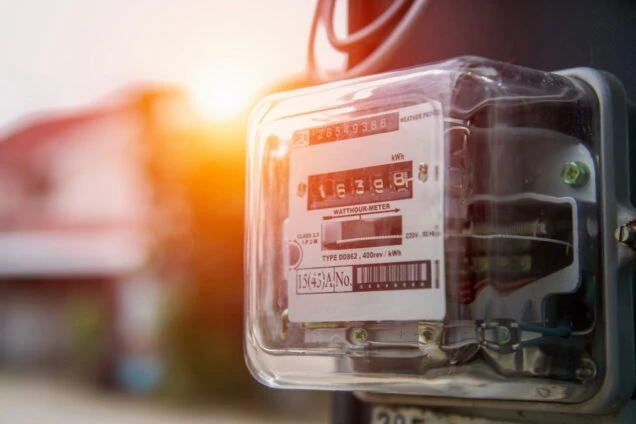The browser you are using is not supported. Please consider using a modern browser.

Budget Billing: Pros, Cons & Ways to Cut Electricity Costs
Key Takeaways
- Budget billing evens out electricity payments by charging a predictable monthly amount based on average past usage.
- While it helps avoid seasonal bill spikes, budget billing doesn’t reduce overall energy costs and may mask usage changes.
- Other savings strategies — like TOU plans, energy assistance programs, and shopping for better rates — can sometimes complement or outperform budget billing.
Table of Contents

For many Americans, monthly utility bills fluctuate wildly with the seasons. Summer heatwaves and winter chills can send electricity costs soaring. One solution that can help even out these peaks and valleys is budget billing — a payment option available through many utility companies.
Below, we’ll answer the question “What is budget billing?”, break down the budget billing pros and cons, explore how it fits into electricity provider switching, and share additional strategies to help you save money on your electric bill.
What Is Budget Billing?
If you’re wondering what budget billing is, you’re not alone. Budget billing, also known as levelized billing or equal payment plans, is a program that averages your electricity usage over the past 12 months and sets a consistent monthly payment amount. Instead of paying based on your actual usage each month, you pay the same flat rate, even when your energy consumption varies dramatically.
How It Works:
- Your utility company calculates your average usage from the past year.
- A monthly payment is set based on this average.
- You pay this same amount each month, regardless of actual use.
- At the end of the year, your payments are reconciled against actual usage. You may owe a balance or receive a credit.
While this doesn’t directly reduce your electricity use, it can be a powerful budgeting tool. Also, bear in mind, if you’ve just moved into a new house or apartment, the utility company may initially base your budget billing on the previous residents’ usage.
How Budget Billing Can Help Save Money
Although budget billing doesn’t cut the total amount you owe, it can help you manage your electricity expenses and avoid financial strain from seasonal spikes. Here’s how it may help:
- Avoid high bills in peak seasons, like summer and winter.
- Prevent late fees or shutoffs by keeping your bill predictable and manageable.
- Create a stable monthly budget by eliminating energy cost surprises.
- Align with fixed incomes, making monthly financial planning easier.


Switching Made Simple
Compare rates from leading providers and make the switch in only a few minutes.
Budget Billing Pros and Cons
Like any billing option, budget billing has pros and cons that should be considered before signing up. Here’s a closer look:
Pros of Budget Billing:
- Predictable monthly payments: Make planning and sticking to a budget easier.
- No seasonal surprises: Avoid large bills during months of heavy usage.
- Financial stability: Helps those with fixed incomes or tight budgets.
- Protection from market spikes: May offer insulation from short-term rate increases.
Cons of Budget Billing:
- No actual cost reduction: Budget billing spreads out payments but doesn’t lower your bill.
- Year-end reconciliation: You could owe money if you use more electricity than expected.
- Less incentive to save energy: Flat payments may reduce your awareness of daily energy habits.
- Limited usage transparency: Harder to track real-time consumption and adjust behaviors.
These budget billing pros and cons vary by household and usage habits, so consider your energy needs and financial situation before enrolling.
Can You Use Budget Billing When Switching Electricity Providers?
-
If your utility stays the same, your budget billing plan may continue even after switching suppliers.
-
If you change utility companies, you’ll likely need to re-enroll in a new budget billing program.
-
Retail energy providers may offer their own version of budget billing, so ask about this before signing a new contract.
-
Tip: Before switching, call both your utility and your potential new provider to confirm how budget billing will work.
Other Ways to Save on Electricity Bills
Whether or not you opt for budget billing, there are other effective ways to lower your electricity costs:
1. Time-of-Use (TOU) Rate Plans
These plans charge different rates depending on when electricity is used. Power is more expensive during peak hours (usually afternoons and early evenings) and cheaper during off-peak times (nights and weekends). You can save by running appliances or charging electric vehicles during low-cost hours.
2. Energy Assistance Programs
Programs like LIHEAP (Low-Income Home Energy Assistance Program) offer financial help to eligible households. Many utility companies and local agencies provide additional aid or payment plans.
Check with your state energy office or utility company to see what’s available. You can also visit our blog about energy assistance programs you may be eligible for.
3. Compare Electricity Providers
In deregulated energy states, consumers have the power to choose their electricity supplier, which can lead to significant savings on their bills. By using online tools like ElectricityRates.com, customers can easily compare different fixed and variable rate plans, select contract lengths that suit their needs, and even find options that support renewable energy sources. This proactive approach to electricity shopping can often result in greater savings than simply relying on utility-provided budget billing.
If you’ve been asking “what is budget billing,” hopefully you now understand how this option can benefit — or hinder — your household finances. The budget billing pros and cons boil down to your need for predictable payments versus your desire to closely monitor and adjust your energy use.
Before you decide, take advantage of the free tools at ElectricityRates.com to compare providers, switch plans, and explore a wealth of resources designed to help you lower your electricity bill and make informed energy choices.




